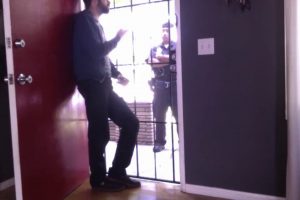
Indiana Cyber Crime Attorney 317-636-7514
Internet crime, also known as
cybercrime or
computer crime, is an increasing threat across America. Cybercrimes are criminal offenses conducted using modern telecommunication networks, namely the internet and mobile phones. They are classified as offenses committed directly or indirectly against a person or group of people with a criminal motive to purposefully cause the victim harm or loss. This includes physical harm, mental harm, and harm to one’s reputation, as well as, losses such as money, assets, companionship, employment, security, and more. They are serious crimes that come with serious penalties.
Continue reading to learn some common types of internet crimes and the penalties offenders can face for committing them.
Cybercrime
There are various types of cybercrimes, and even more ways to commit them. And we’re not talking about illegally downloading movies and music; although these are common internet infractions as well, they tend to render little to no consequences except personal ethical remorse. We are discussing the more serious types of internet crimes; the ones that come with serious penalties here in Indiana. The most common types of cybercrimes that occur in the Hoosier state include but are not limited to:
Fraud ➟ Fraud on the internet can come in many forms. A common example is obtaining money or property under false pretenses or promises. For instance, selling false or non-existent merchandise online, and failing to deliver.
Identity Theft ➟ Identity theft is one of the most frustrating and devastating crimes for victims. A common example of identity theft is when a person uses another person’s personal information to open and utilize bank accounts and credit lines. Other identity thieves steal individual’s bank account numbers, credit and debit card numbers, social security numbers, and more. They either sell this information or they use it themselves for financial gain. It can ruin a person’s reputation and credit score for life.
Hacking ➟ Accessing a person’s personal information for the purpose of malicious destruction or commercial advantage via the internet is a form of hacking, but the versions you see in the movies and on television are quite accurate as well. There are many forms of hacking (business accounts, social media profiles, email, corporate files, government databases, websites, etc.), but fundamentally, hackers illegally access information online using illegal methods.
Stalking ➟ Internet stalking is a crime. It can come in the form of harassment, pestering, bullying, threats, slander, libel, and more. It is most common among youths.
Extortion/Blackmail ➟ There are also many forms of extortion, but in terms of cybercrime, it can occur when a person blackmails another person via a modern telecommunications network. For instance, a person could threaten to release embarrassing photos or information about another person unless they give them money, assets, promotions, or something else of value.
Sports Betting ➟ Online sports betting and wagering is a federal crime. There are laws surrounding non-sports online betting and internet gambling that vary state to state, but wagering on sports on the internet is illegal.
The Indiana Cyber Crime Unit

Indiana Cyber Crime Attorney 317-636-7514
In May of 1998, Indiana formed the
Cyber Crime Unit to provide law enforcement assistance in internet criminal investigations. Within this specialized unit are 6 sergeants who conduct forensic retrieval of digital evidence, and over 28 trained digital media specialists. They are trained to be on the constant look-out for internet criminal activity. This makes it extremely difficult (if not virtually impossible) for anyone to get away with cybercrime in Indiana. If you are caught committing a cybercrime, you can expect to face some stern charges and penalties.
Penalties for Cybercrime
The penalties for cybercrime vary, and they depend on several factors, including the severity of the crime, the offender’s criminal history, local ordinances, age of offender, and more. In Indiana, cybercrime can earn an offender anywhere from 6 months to 20 years in prison, and up to $10,000 in fines. This does not include court fees, attorney fees, filing fees, and more. It is important to retain the services of an experienced Indianapolis criminal defense attorney to protect your rights as a suspected offender and to protect your freedoms.
Indianapolis Criminal Defense

David E. Lewis Attorney at Law 317-636-7514
Call Attorney David E. Lewis at
317-636-7514 if you are facing charges for cybercrime in Indiana. Our law firm works around the clock to ensure your rights are protected. Attorney David E. Lewis has extensive trial and litigation experience and is the aggressive criminal defense lawyer you need in your corner when facing serious criminal charges in Indiana.
Call 317-636-7514 to set up a
free initial consultation to discuss your criminal case and determine the best strategy for your defense.





















